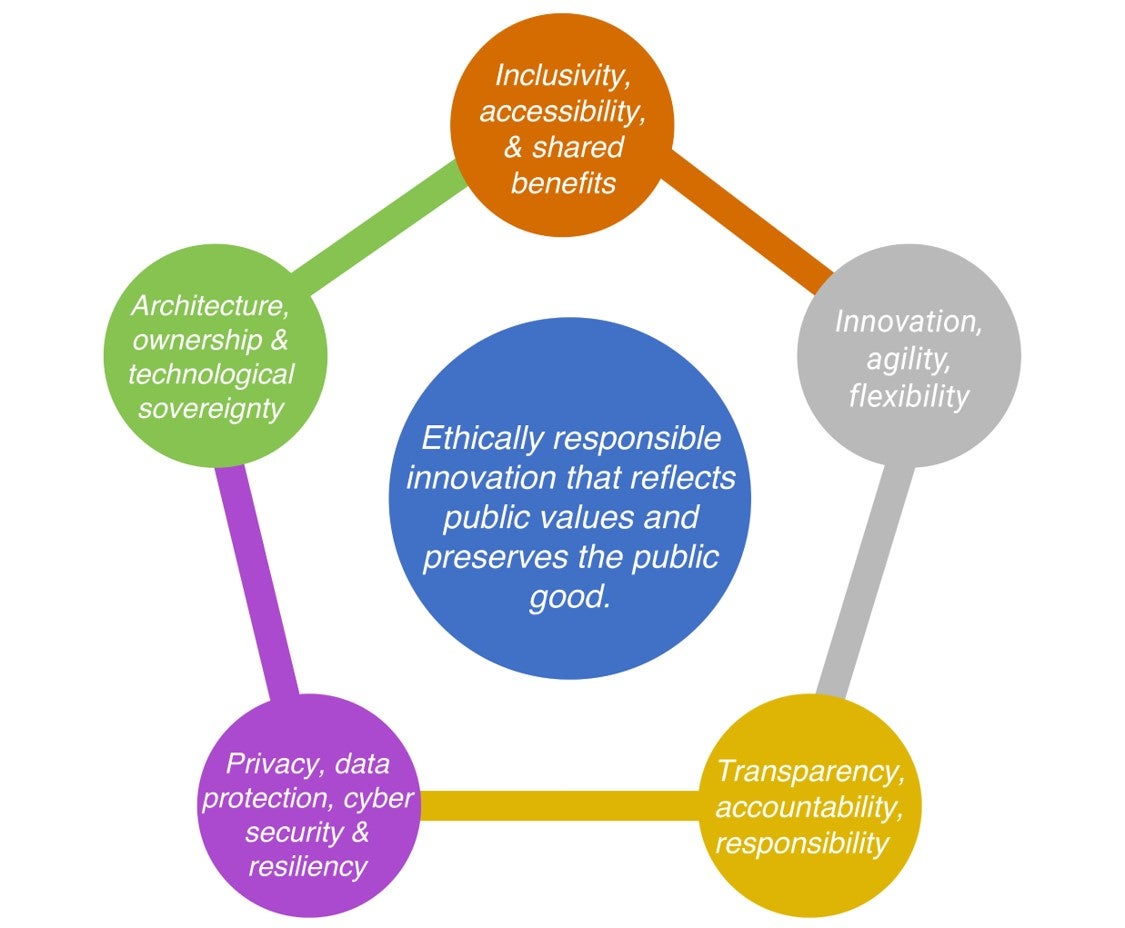What Do We Value? Creating Digital Principles for the Waterfront
POSTED: MAY 31, 2019 I TECHNOLOGY
By: Vance Lockton
We are wrong to simply say “How do we extract value from data?” Instead, we need to ask “What do we value?”
With these thoughts, Michael Geist, Chair of Waterfront Toronto's Digital Strategy Advisory Panel, summed up Waterfront Toronto’s third Civic Labs session on Realizing the Value of Data (following sessions on Digital Governance (blog + video) and Digital Stewardship (video)).
Below, we outline some of our key takeaways from this session, introduce our draft Digital Principles and provide a full set of resources to engage more deeply with and provide feedback on these Principles and other concepts related to digital technologies in cities. 
One key takeaway from this Civic Labs was the need to examine what we mean when we discuss “value” in the context of data. This means creating a distinction that value is not an inherent part of data. Rather, value is only derived from data by gathering, analyzing and constructively using data.
To help break this concept down, we heard from a host of experts about this topic. We learned about how we can define data’s value including using data to create new intellectual property and the use of data for social good and improvement in quality of life. For example, data can be responsibly harnessed to facilitate progress towards broader public objectives, such as more efficient transit services.
There are, however, important questions about the cost of deriving different types of value from data. The value of collecting and using data can often be offset by the costs of doing so, including both the real and perceived losses of privacy. The goal is to ensure appropriate balance between the value generated and cost incurred, which is achieved through careful consideration and oversight in the use of information.
At Waterfront Toronto, our mandate has always been to act in the best interest of the public and to ensure the appropriate use of information. With data-driven digital solutions increasingly at the forefront of modern city-building, we endeavor to stay ahead of the curve through constant reflection and foresight.
We have created our draft Digital Principles to ensure that any project proposals to Waterfront Toronto demonstrates ethically responsible innovation that reflects public values and preserves or enhances the public good.
Principle #1: Inclusivity, accessibility and shared benefit
Principle #2: Innovation, agility, flexibility
Principle #3: Transparency, accountability, responsibility
Principle #4: Privacy, data protection, cyber security and resiliency
Principle #5: Architecture, ownership and technological sovereignty
These draft Principles have been developed through our recent Civic Labs series and other engagements with the public, and informed by work of cities around the world, including the efforts of the Cities Coalition for Digital Rights. After more public consultation on these draft Digital Principles, we will engage Waterfront Toronto’s Digital Strategy Advisory Panel for their expertise and guidance. 
On May 22, we hosted a Public Meeting on Digital Neighbourhoods and Digital Literacy, in partnership with Toronto Public Library, outlining the research we conducted and information we consumed in order to form these draft Principles. We previewed these draft Principles for those in attendance and gave them an opportunity to provide feedback. Following this meeting, we are also seeking feedback from those who could not make it.
We want to hear from you!
If you would like to contribute to the conversation, you can find all the materials online. You can watch a video of the presentation, read through the discussion guide and submit your completed feedback form via email.




